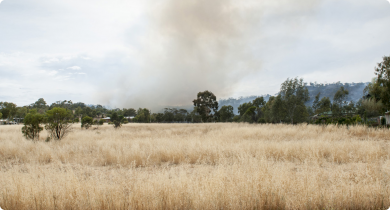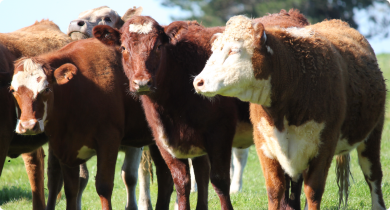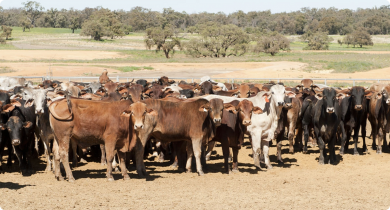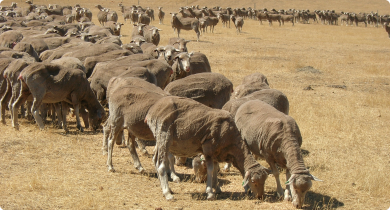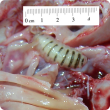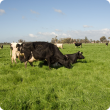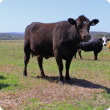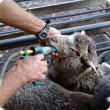Livestock & animals
The Department of Primary Industries and Regional Development supply chain support, research and development and rigorous biosecurity systems underpin the economic success of Western Australia’s livestock industries. In 2011/12, the WA livestock industries contributed 26% of the state’s agriculture, fisheries and forestry production, worth approximately $2 billion at the farm gate.
WA is a world leader in live exports, super fine wool production and dryland sheep and grain systems. Both cattle and sheep systems are focused on export markets to Asia and the Middle East. WA also has innovative, world-class integrated dairy and pork industries meeting local and South East Asian demand for safe, fresh milk and pork. The WA poultry industry is growing strongly as a result of increasing domestic consumption.
Global demand for high-quality, safe animal protein and products produced according to high animal welfare standards will continue to rise in coming years. Increasingly DAFWA will partner with industry -- locally, nationally and internationally -- in transformational business projects to capitalise on this demand.
Filter by search
Filter by topic
- (-) Remove Livestock management filter Livestock management
- Pests, weeds & diseases (51) Apply Pests, weeds & diseases filter
- (-) Remove Diseases filter Diseases
- Livestock health & diseases (49) Apply Livestock health & diseases filter
- Livestock species (36) Apply Livestock species filter
- Biosecurity & quarantine (34) Apply Biosecurity & quarantine filter
- Livestock disease surveillance (34) Apply Livestock disease surveillance filter
- Biosecurity (34) Apply Biosecurity filter
- Livestock biosecurity (33) Apply Livestock biosecurity filter
- Sheep (25) Apply Sheep filter
- Management & reproduction (18) Apply Management & reproduction filter
- Feeding & nutrition (12) Apply Feeding & nutrition filter
- Livestock parasites (11) Apply Livestock parasites filter
- Emergency animal disease preparedness (9) Apply Emergency animal disease preparedness filter
- Beef cattle (9) Apply Beef cattle filter
- Dairy cattle (6) Apply Dairy cattle filter
- Stockfeed (5) Apply Stockfeed filter
- Goats (4) Apply Goats filter
- Pigs (3) Apply Pigs filter
- Wildlife biosecurity (3) Apply Wildlife biosecurity filter
- Emergency response (3) Apply Emergency response filter
- Poultry & birds (2) Apply Poultry & birds filter
- Veterinary chemicals (2) Apply Veterinary chemicals filter
- Horses (2) Apply Horses filter
- Livestock movement & identification (2) Apply Livestock movement & identification filter
- Food, export & investment (2) Apply Food, export & investment filter
- Chemicals (2) Apply Chemicals filter
- Control methods (2) Apply Control methods filter
- Water (1) Apply Water filter
- Water management (1) Apply Water management filter
- Livestock research & development (1) Apply Livestock research & development filter
- Climate, land & water (1) Apply Climate, land & water filter
- Animal welfare (1) Apply Animal welfare filter
- Fungi (1) Apply Fungi filter

